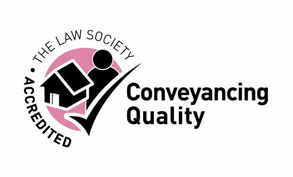Day: 10 July 2024
Acting as an Executor Part II
- I know that I am a beneficiary in an estate, but the Executor has not contacted me and as far as I can work out, the Executor is doing nothing. What can I do?
The first course of action that a beneficiary can take is to try and make contact with the Executor to highlight the issues of concern. It may of course be that the Executor has simply not been made aware of their role or duties and they are in the dark as to what steps they need to take. There may simply have been a breakdown of communication. It is essential that all parties explore all options for resolving matters in advance of taking any form of enforcement action.
If the Executor continues to refuse to act or ignores the appointment, then beneficiaries can take steps to request that the Probate Court removes them as Executors for not complying with their duties. The Court will consider what is in the best interests of the Estate. The Court will consider removal in the following circumstances: –
- Disqualification where the Executors position has changed, and they are no longer qualified to fulfil the role.
- Incapacity – where an Executor is not capable of undertaking their duties.
- Unsuitability which can arise where the Executor has been declared bankrupt for example, or there has been a conflict of interest between the executor’s position and the estate, or there has been serious misconduct on the part of the Executor.
What are the consequences of me not acting? For me personally and for the Estate?
There can be financial consequences for the Estate and for the Executor. If debts are not settled, resulting in penalties, interest or enforcement action, this will lead to losses to the Estate and a reduction in the value to the beneficiaries. Assets might deteriorate or reduce in value as a result of neglect. In all these circumstances, if the Executor can be shown to have neglected their duties, then they will be responsible and may be required to make good any losses.
- What if the Executor does act, but acts improperly or incorrectly?
An Executor will be expected to make good any losses as a result of neglect, prevarication or defalcation. This can extend from However, in the most serious of cases where there has been fraud or serious misconduct, an Executor can be subject of criminal proceedings with a potential custodial sentence if found guilty.
If you are appointed as an Executor and need help in handling the issues involved in administration of an estate, contact our specialist team at Baines Bagguley Penhale who will be pleased to assist.
Contact Olivia Hodgson or Catherine Johnston on 01524 401010.
Or email ovh@bbplegal.co.uk or cj@bbplegal.c
Acting as an Executor Part I
The duties and the responsibilities
- I have been appointed as Executor – do I have to accept the appointment?
So you’ve considered the duties that you are required to perform as Executor and you are not sure what to do.
You may have been asked by the Testator at the time they were making the will to accept the appointment as Executor but maybe you didn’t realise at the time what was involved or maybe you don’t feel up to it now the time has come. Or maybe you were never asked and the appointment has come as a complete surprise. What can you do?
If there are other executors appointed who are willing to act, then you can have the power as Executor ‘reserved’ and allow the other Executors to deal with the Estate. In this circumstance, an Executor has the option to step back in and deal with the Estate at a later date if required. For example, if the other Executors are unable to carry out their duties and complete the administration of the estate. Or if an issue arises, which you are in a position to resolve and wish to become involved in the administration.
- I don’t want to be involved at all. Can I avoid my appointment?
An Executor can renounce their role as Executor. This means that they will take no further part in the administration of the estate, now or in the future. They rid themselves of any obligations or duties of Executor at the point of renunciation.
- What if I just ignore it altogether?
If an Executor who does not wish to take the role, fails to take the necessary steps to either reserve their power or to renounce their appointment, then they are still legally bound to act and deal with the administration of the estate.
If Executors fail to deal with the administration of the estate as required, or to communicate with the beneficiaries under the terms of the will, there can be serious consequences because the Executors are legally bound to follow the wishes of the will and to administer the estate in a lawful way. They may be required to make good from their own resources any loss to the estate or the beneficiaries.
- What if I am the only Executor appointed?
You would not be able to have power reserved but you could renounce. In that case the duties would pass to an Administrator who will be appointed on the basis of how they are related to the Testator in a strict order of priority.
All Executors should seek early legal advice when dealing with the administration of an estate, to ensure that they are fulfilling their duties and responsibilities fully and correctly.
If you are appointed as an Executor and need help in handling the issues involved in administration of an estate, contact our specialist team at Baines Bagguley Penhale who will be pleased to assist.
Contact Olivia Hodgson or Catherine Johnston on 01524 401010.
Or email ovh@bbplegal.co.uk or cj@bbplegal.co.uk







